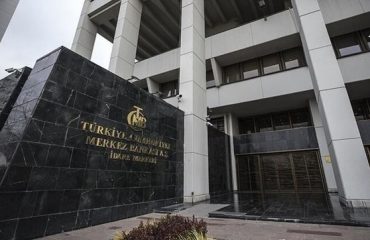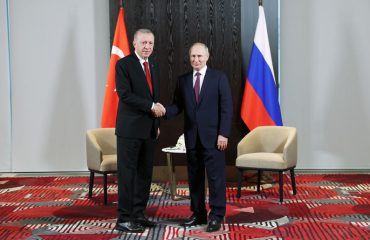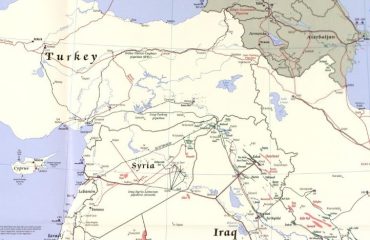

“Dressing the wound” is a term which Necmettin Erbakan, the founder of the National Outlook Movement that the ruling Justice and Development Party (AKP) and President Tayyip Erdoğan have emerged from, used in the 1970s. He used the term to describe superficial economic or political measures which aim to save the day rather than ensure economic recovery. You cannot cure a patient in critical condition with an external dressing of the wounds; that is what he meant.
On his way back from his Qatar visit on December 7, Erdoğan held a press conference and pointed to stockpilers as the reason for the recent hike in commodity prices. On December 8, after the Cabinet meeting, he made a speech asking citizens and institutions to discharge any foreign currency in their possession if they have any. The first speech indicated that Erdoğan was chasing the mosquitos rather than draining the swamp. When it comes to the second one, I am sure Erbakan would call it a measure that “dressing the wound” if he was alive, unless it is a sign that government will take further measures about foreign currency accounts.
That’s right, the rate of foreign currency deposits in the banks of Turkish citizens have exceeded 60 percent. But if the citizens started to exchange foreign currency upon Erdogan’s call, it would not be enough to bring the economy back to normal, as he said in his speech -which he said is of historical importance-. While people were overwhelmed by the price hikes one after another, Erdogan was talking about his goal of entering the world’s top 10 largest economies. If that isn’t dressing the wounds of a bleeding patient, what is?
We are about to cut all of our ties with reality.
Does Erdogan consider making sacrifices himself?
It is clear that Erdogan was not able to find investment support to the extent he expected neither from the United Arab Emirates (UAE) reconciliation nor from his Qatar trip. The only concrete result that came out of his cabinet, which he gathered as soon as he arrived, is the call from citizens to exchange their savings in foreign currency. It ratifies the theory.
Erdogan expects this sacrifice from the citizens, but does he think of making that sacrifice himself?
For example, may he announce that he has discharged this or that amount of foreign currency in his account? Or if there are any foreign currency savings of the president and his family or not? If we knew his possessions or his assets, we would ask.
For example, in these days of “economic war of independence,” wouldn’t the privileged construction contractors make any sacrifices with their treasury guaranteed payments?
There can be no saving from reputation, AKP officials repeatedly say, when their expenses are addressed. Would they sacrifice from their office cars or private office planes that they acquire with “no saving from reputation” arrogance despite the superficial austerity decrees?
The AKP elites that receive four or five payments in one month, in other words, the new happy minority, would there be no sacrifice on their plate?
Sacrifice is always for those who try to protect their small savings by buying foreign currency or gold or the ones who try to make ends meet with the melting minimum wage, or those who cannot even find that job that pays the minimum wage to begin with.
Economy cannot be recovered even with the dressing methods, you say? You are right.
Obstinacy for the sake of obstinacy
No, I will not talk about the stubbornness of the mega-project Kanal Istanbul. The president of a country should not have told the opposition leader that even if they win, he will compel them to pay the foreign companies in any way. I wonder where the investment money will come from.
Our semi-intellectual crowd has an extremely distorted image of a “wealthy Arab.” Oil and gas-rich Arab sheikhs are caricatured as arrogant people unaware of the world with their keffiyeh, robes and slippers. I will not oppose the arrogance part, but all those princes, emirs studied economics, business or engineering in the world’s best universities with their oil and gas money. I don’t think they will tie their money to any dead investments or projects with an uncertain prospect.
The obstinacy that I want to talk about is Erdoğan’s insistence on his thesis that inflation results from the interest rates that he ground only with Islamic reference. According to this theory, the export will rise with cheap labour, foreign currency will flow into the country, and we will see the light at the end of the tunnel. Right? Since all other countries will be doing nothing in the time being, Turkey will be among the top 10 economies in the world in line with Erdoğan’s 2023 goals.
Only if the dreams come true
I wish this dream would come true, but it doesn’t look like it will happen; especially with these “dressing the wound” measures, the patient does not seem to be able to get out of bed for a long time.
Let’s see if the citizens will rush to discharge their foreign currency at Erdogan’s call. You might recall that Erdogan’s hometown Rize and MHP leader Devlet Bahçeli’s hometown Osmaniye were among the top five provinces that people bought the most foreign currency during the crisis. So I wonder what they will do.
Election time is approaching: it must be held no later than June 18 2023. Maybe the AKP-MHP alliance will find the solution by changing the election rules.
Would you say, “do not exaggerate, not that much”? I would say think again.


